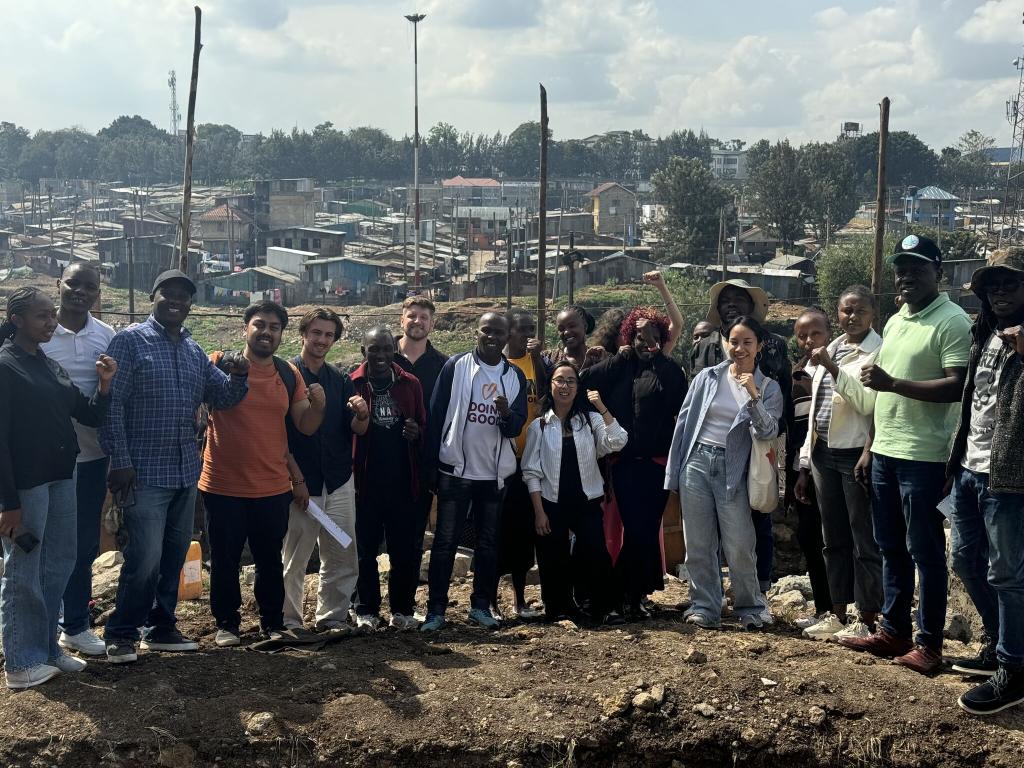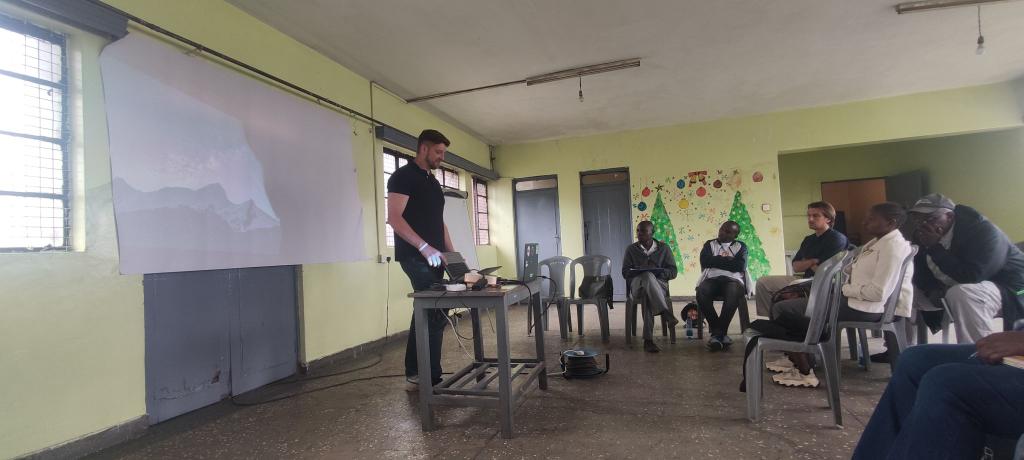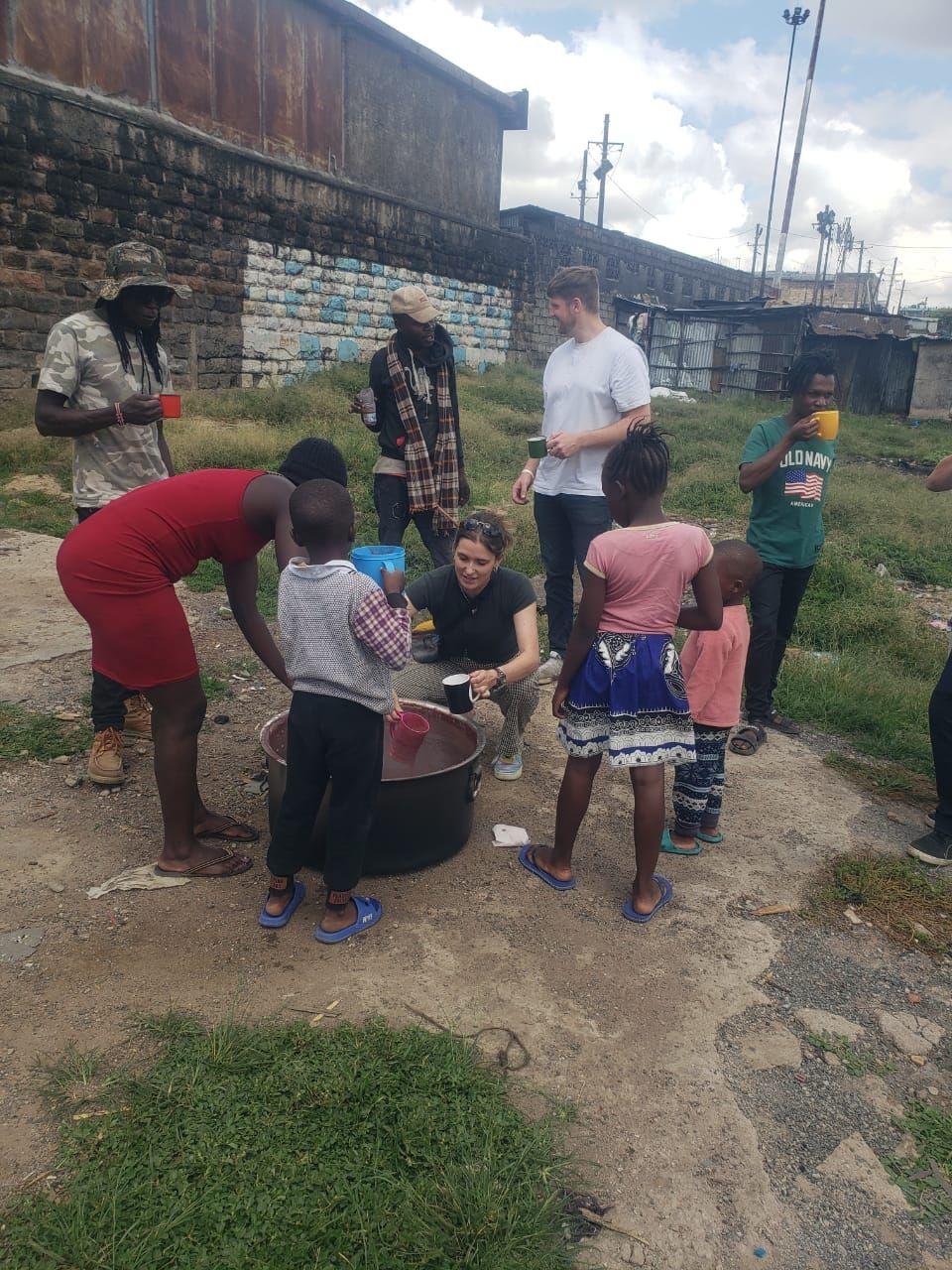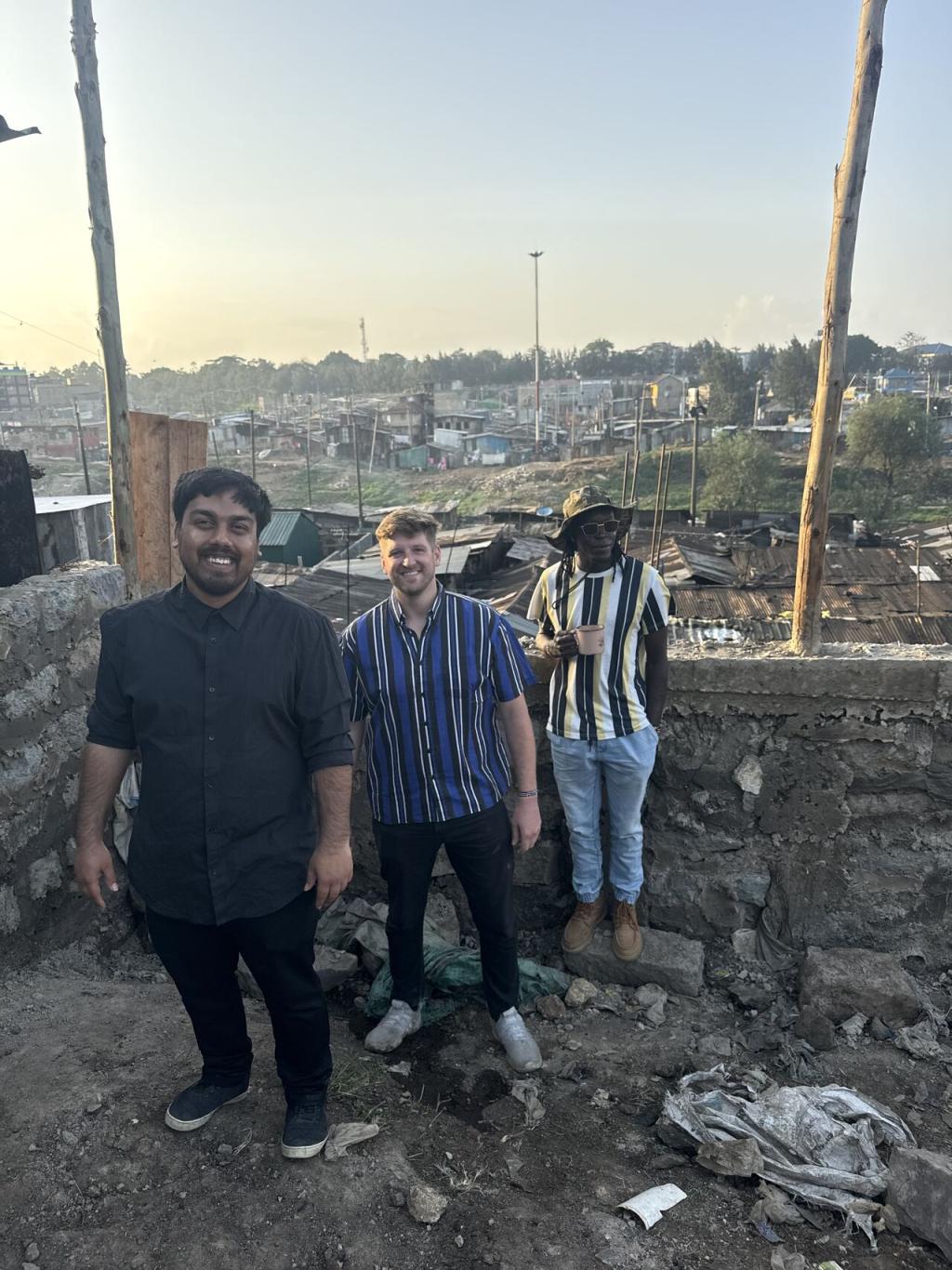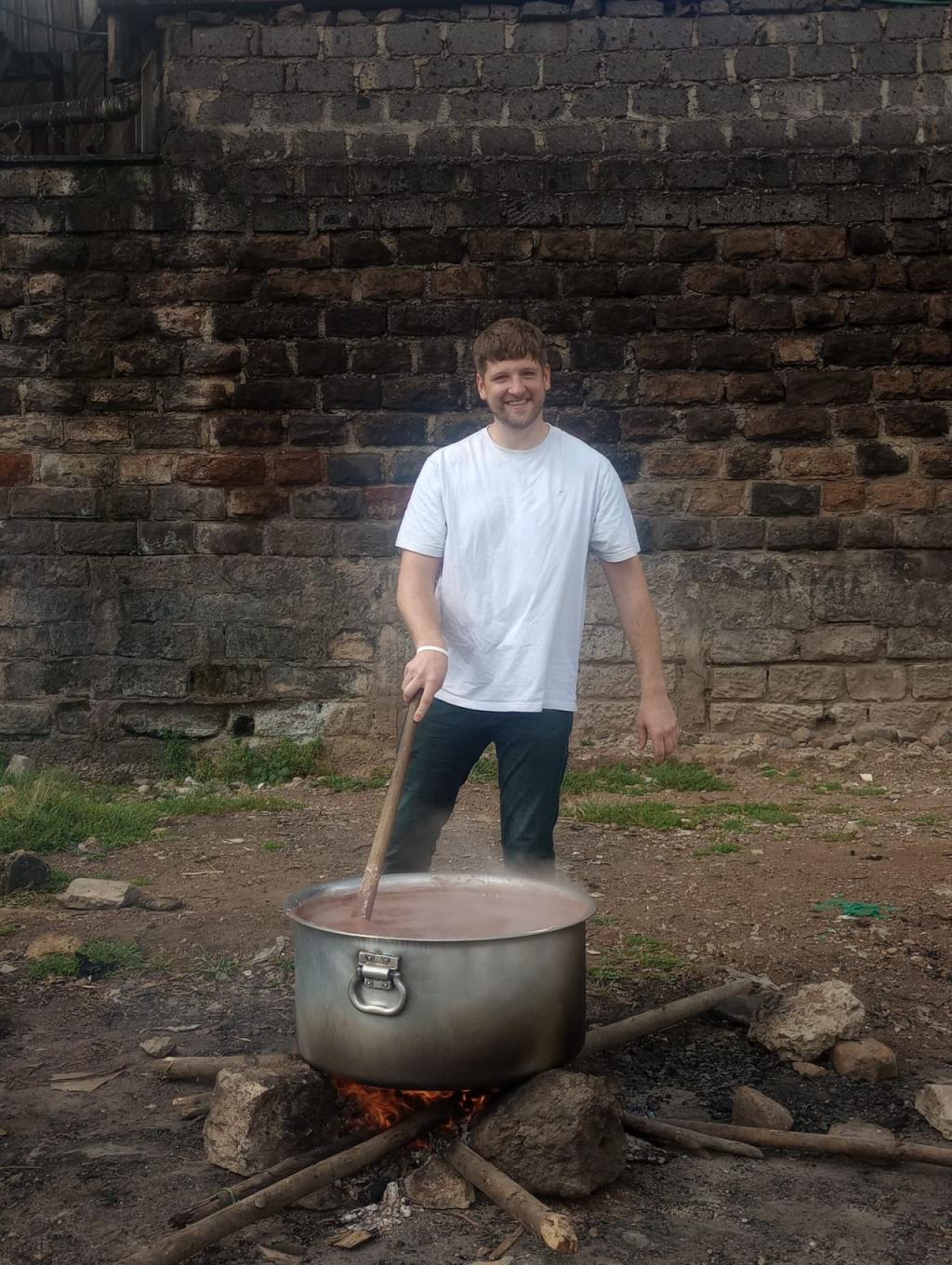In Nairobi’s ever evolving urban landscape, community driven research is proving crucial in bridging the gap between scientific and tacit knowledge. The 2025 Thesis Atelier, a collaborative initiative by the Nuvoni Center for Innovation Research, the Institute for Housing and Urban Development Studies (IHS), Erasmus University Rotterdam and LDE Global, is spearheading impactful master’s theses by integrating them into the Community-Based Participatory Research (CBPR) approach ensuring that local voices shape research outcomes.
From Classrooms to Kibera, Mathare, and Mukuru
On May 5, 2025, six master’s students arrived in Nairobi to immerse themselves in community-engaged fieldwork. Guided by CBPR, they worked alongside local residents, grassroots organizations such as SDI Kenya, WRI Kenya, Ghetto Foundation, and Muungano wa Wanavijiji. The students tackled four interrelated urban themes: disaster risk management, climate-resilient housing, scaling resilience initiatives, and urban upgrading.
Through transect walks, community observations, stakeholder dialogues, and collaboration with local researchers, students collected data not only about communities but with them. This participatory model helped ensure mutual learning, reduced research waste, and generated actionable insights for development planning.
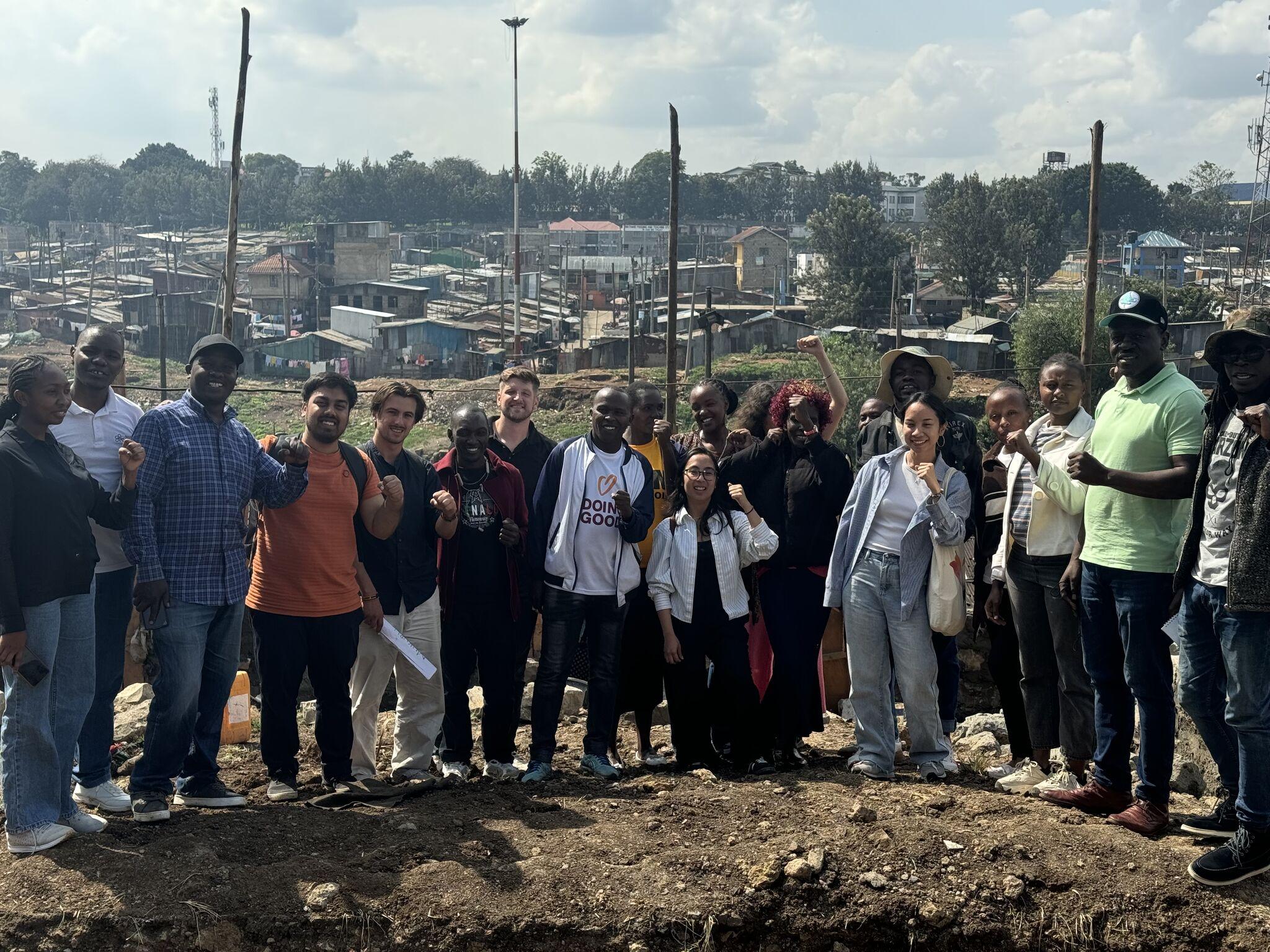
Ground-Level Knowledge: Key Findings
A validation session with community stakeholders allowed students to present their findings and co-reflect on their relevance to policy and practice.
Housing & Slum Upgrading
Research revealed persistent disconnects between top-down housing programs and the needs of residents. In Kenya’s ongoing housing push, community participation remains a missing link. Findings underscored the importance of involving local voices to smooth transitions and avoid project failure.
Slum upgrading efforts must go beyond physical infrastructure. Students emphasized the need to invest in human capital by developing entrepreneurial skills within communities. This shift would not only improve livelihoods but also make upgrading more sustainable.
Community Resilience & Women-Led Enterprises
Women-led enterprises emerged as critical pillars of resilience in informal settlements. These businesses help sustain local economies and buffer communities against shocks. Recognizing and supporting these enterprises is vital for inclusive, grassroots development.
Disaster Risk Management
Flood and fire risks were studied across informal settlements. For flooding, researchers found that strong social networks—especially women’s groups and CBOs—are instrumental in disaster response. Empowering these networks and establishing early warning systems can improve flood resilience.
When it comes to fire, local communities possess deep knowledge about causes and mitigation strategies. Integrating this knowledge into urban planning frameworks could significantly reduce the frequency and impact of fire disasters in informal settlements.
Nature-Based Solutions (NbS)
As urban areas face increasing climate risks, the promise of nature-based solutions (NbS) is gaining attention. Yet, a policy vacuum exists. Research explored stakeholder perceptions and highlighted the need for stronger regulatory frameworks to support NbS adoption in cities.
The Power of Integration
The overarching message from the 2025 Thesis Atelier is clear: urban challenges are interconnected. Addressing housing, disaster risk, and economic development in isolation is no longer viable. Integrated, community-centered approaches are essential to make lasting progress.
A Student’s Perspective: Learning Beyond the Thesis
Participating student Dak Swank described his month-long immersion in Mathare as “a lifetime of lessons.” Working on slum upgrading, he navigated government forums, NGO collaborations, and lived realities of Nairobi’s informal settlements. “This work demanded every ounce of adaptability and critical thinking I’ve got,” he said. “It was about listening, learning, and showing up.”
Swank’s experience illustrates the transformative power of CBPR—not just for communities, but for researchers themselves. His partnership with local organizations continues beyond the thesis, supporting a fundraising initiative led by the Ghetto Foundation for a new community center in Mathare.
As one elder told him, “The only easy day was yesterday. We must keep fighting.”
Conclusion
The 2025 Thesis Atelier reaffirms that when research is rooted in participation, it becomes a tool for empowerment and sustainable change. By engaging communities as co-producers of knowledge, students didn’t just collect data—they co-authored solutions. The future of urban development lies in these partnerships—local, inclusive, and resilient.
